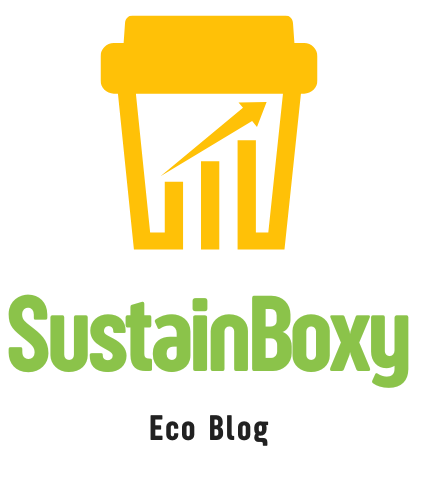Introduction
In today’s environmentally conscious society, the urgency to adopt sustainable practices is more prominent than ever, especially in the realm of food preservation. Recycled aluminum foil wraps offer an innovative solution that aligns with eco-friendly goals while ensuring food stays fresh and safe.
Understanding Recycled Aluminum Foil
Recycled aluminum foil is crafted from post-consumer or post-industrial aluminum materials. The process involves collecting and refining used aluminum products to produce new sheets.
This recycling method significantly reduces the need for raw materials and decreases energy consumption by up to 95% compared to new aluminum production.
By opting for recycled aluminum foil, consumers contribute to a substantial decrease in landfill waste. Aluminum is infinitely recyclable without degradation in quality, making it a superior choice for environmental sustainability.
Moreover, this approach aids in conserving natural resources and reducing the carbon footprint associated with mining and processing new aluminum. These benefits make recycled aluminum foil a preferred option for eco-conscious individuals and businesses alike.
Eco-Friendly Food Preservation Methods
Preserving food using eco-friendly methods not only extends the shelf life of produce and leftovers but also plays a crucial role in reducing food waste.
Recycled aluminum foil wraps are highly effective in sealing freshness and protecting food items from oxygen and moisture, which are primary causes of spoilage.
Unlike plastic wraps, aluminum foil does not release harmful chemicals and can be reused multiple times if cleaned properly. This reusability factor enhances its eco-friendly profile. Additionally, when used appropriately, recycled aluminum foil can be recycled yet again, continuing the cycle of sustainability.
Consumers are encouraged to gently clean and dry used foil for reuse in covering and wrapping various food items, thereby maximizing the product’s lifecycle and reducing the need for single-use packaging materials.
Market Trends and Consumer Preferences
Recent years have seen a notable shift in consumer behavior, with a growing preference for products that are not only effective but also environmentally responsible.
Studies indicate that a significant percentage of consumers are willing to pay a premium for sustainable packaging options like recycled aluminum foil.
This trend is supported by increasing awareness and education about the environmental impacts of packaging waste. Companies that incorporate recycled aluminum foil into their packaging solutions often experience a positive reception and enhanced brand loyalty from eco-aware customers.
Furthermore, regulatory pressures and governmental incentives for sustainable practices in industries across the board have propelled the adoption of recycled materials. This regulatory environment has led to innovations in the production and use of recycled aluminum foil in the food preservation sector.
Challenges in Adoption and Production
While the benefits of recycled aluminum foil are clear, there are challenges in its widespread adoption. The availability of used aluminum materials suitable for recycling can be inconsistent, leading to potential disruptions in the supply chain.
Moreover, the process of collecting, sorting, and recycling used aluminum requires a well-established infrastructure, which is not yet available in all regions. This gap can result in higher costs and logistical complexities, potentially deterring smaller businesses or regions with limited resources from adopting this sustainable practice.
Education and awareness about the proper disposal and recycling practices for aluminum foil are also crucial. Incorrect disposal can lead to contamination, making the recycling process more difficult and less efficient.
Comparisons with Other Sustainable Packaging Options
Recycled aluminum foil wraps stand out among other sustainable packaging options for several reasons. Unlike biodegradable or compostable alternatives, aluminum foil is durable and provides superior barrier qualities, which are essential for the preservation of many food types.
While materials like beeswax wraps and silicone bags also offer reusable solutions, they may not always be suitable for all kinds of food items, especially those requiring an airtight seal. Aluminum foil, with its ability to mold tightly around food, offers a unique advantage in this regard.
Additionally, the energy required to produce recycled aluminum foil is considerably less than that needed for new plastic production, further emphasizing its role in sustainable development.
Future Perspectives in Sustainable Packaging
The future of sustainable packaging is promising, with ongoing advancements in recycling technologies and growing global support for eco-friendly practices. The role of recycled aluminum foil is expected to expand as more industries recognize its benefits and invest in its production.
Innovations in sorting and recycling technologies could enhance the efficiency and cost-effectiveness of recycling aluminum, making it an even more attractive option for businesses and consumers alike.
As consumer demand for sustainable products continues to rise, the market for recycled aluminum foil is poised for significant growth, encouraging more companies to consider this environmentally-friendly option in their packaging strategies.
Practical Tips for Consumers
To maximize the environmental benefits of using recycled aluminum foil, consumers are advised to use it sparingly and only when necessary. Opting for reusable containers where possible can further reduce the reliance on disposable products.
Cleaning and reusing aluminum foil where safe and practical is another effective strategy to extend its lifespan. Consumers should also be diligent in recycling aluminum foil, ensuring it is free of food waste to prevent contamination.
Supporting brands that use recycled packaging and advocating for increased recycling initiatives within local communities can also contribute to broader environmental goals and sustainable development.
Conclusion
Recycled aluminum foil wraps not only offer an effective solution for eco-friendly food preservation but also demonstrate a commitment to sustainable practices that benefit the entire planet. By understanding and leveraging this product, both consumers and businesses can make significant strides towards a more sustainable future.




